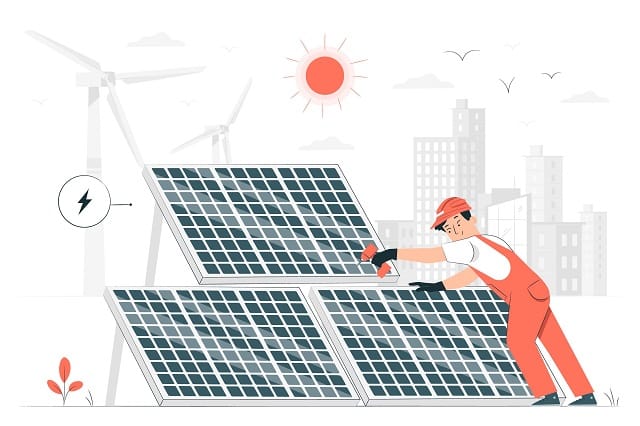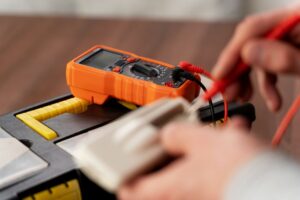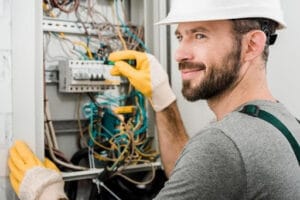A solar inverter is an essential component of solar power systems, as it converts the Direct Current (DC) produced by the PV panels into Alternating Current (AC). If you’re wondering why that’s important, it’s because electrical appliances like TVs, fans, geysers, and air conditioners require Alternating Current (AC) to function – making solar inverters an indispensable part of solar energy systems.
However, today, various solar inverters are available in the Indian market, making it somewhat difficult to find the right one. But don’t worry, as we’re here to help you out, and here’s everything you need to consider before buying a solar inverter:

1. The Type of Solar Power Plant
When purchasing a solar inverter, the first thing you need to consider is the type of solar power plant you wish to install. If you have a grid-tie or grid-connected PV system, you will require a grid-connected/grid-tie inverter. Similarly, if you have an off-grid solar system, you will have to buy an off-grid inverter. However, a hybrid inverter will be needed for hybrid solar plants. Doing so is important as all solar inverters are designed differently and using one in place of the other can damage the photovoltaic (PV) plant.
2. Your Power & Load Requirements
The second factor you should evaluate while buying a solar inverter is your power and load requirements. This depends on the number of appliances that you want to run using the auxiliary power, which includes everything from televisions and air conditioners to washing machines and printers. A solar inverter’s load handling capacity is measured in Volt Ampere (VA), and the higher it is, the more appliances you can run. However, this will also affect the inverter’s price.
3. The Solar Inverter’s Technology
In India, solar inverters are typically designed using two types of technologies – Pulse Width Modulation (PWM) and Maximum Power Point Tracking (MPPT). Pulse Width Modulation (PWM) is a tried and tested technology that has been used in solar inverters for decades; however, its efficiency is lower compared to MPPT technology.
But Maximum Power Point Tracking (MPPT) is also more expensive and is fairly new in the market. Thus, make sure you compare both your options thoroughly before choosing either technology.
4. Additional Features
While buying a solar inverter, it is crucial to select one with additional features. These include fast charging, priority setting option, UPS and ECO modes, Wi-Fi and remote monitoring, ISOT technology, IP65 protection, pure sine wave output, and a user-friendly LCD display. Additionally, make sure you buy an inverter with good safety features like anti-islanding protection, dual MCB protection, and overload handling so you get your money’s worth.
5. An Extended Warranty Period
A solar inverter is an investment, which is why you should purchase one with an extended warranty period. This will ensure that all repairs and replacements are covered by the manufacturer, helping you avoid burning a hole through your pocket. Although solar inverters typically have a warranty of up to 24 months, this can vary from one seller to another. Regardless, it is best to buy one with the highest warranty period.
While this covers the main points you need to consider when buying a solar inverter, it is also crucial to choose the right brand. You should always go for reliable, established, and reputable brands that offer high-quality and high-performance products.











